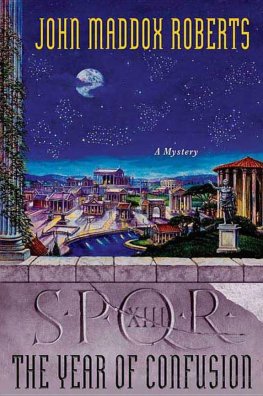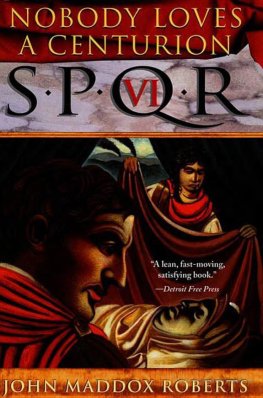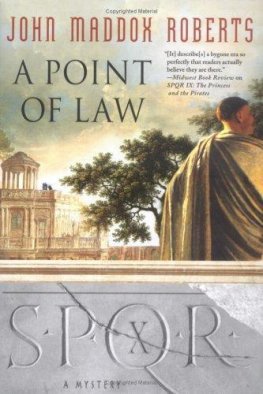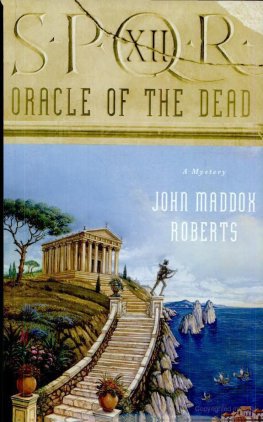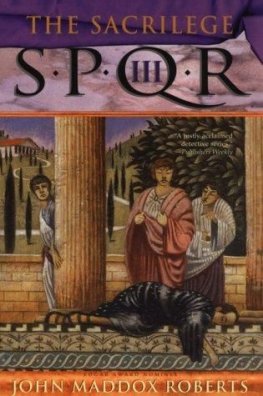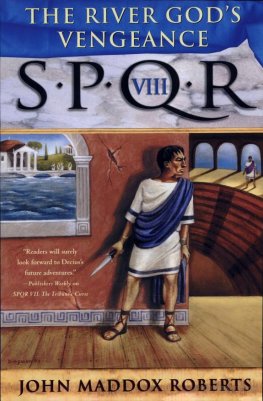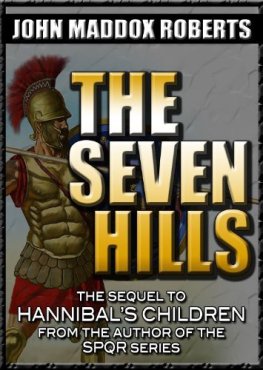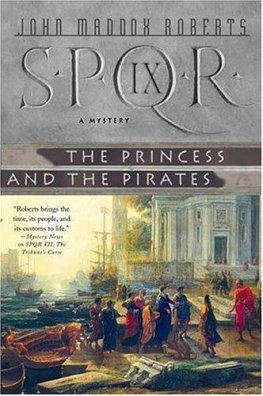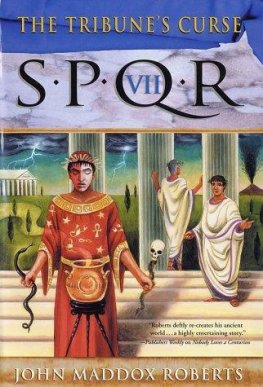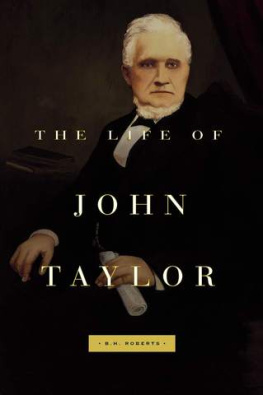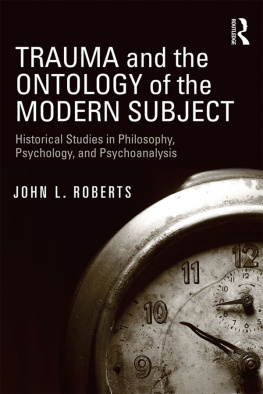John Roberts - The Year of Confusion
Here you can read online John Roberts - The Year of Confusion full text of the book (entire story) in english for free. Download pdf and epub, get meaning, cover and reviews about this ebook. year: 0101, publisher: St. Martin, genre: Detective and thriller. Description of the work, (preface) as well as reviews are available. Best literature library LitArk.com created for fans of good reading and offers a wide selection of genres:
Romance novel
Science fiction
Adventure
Detective
Science
History
Home and family
Prose
Art
Politics
Computer
Non-fiction
Religion
Business
Children
Humor
Choose a favorite category and find really read worthwhile books. Enjoy immersion in the world of imagination, feel the emotions of the characters or learn something new for yourself, make an fascinating discovery.
- Book:The Year of Confusion
- Author:
- Publisher:St. Martin
- Genre:
- Year:0101
- Rating:4 / 5
- Favourites:Add to favourites
- Your mark:
- 80
- 1
- 2
- 3
- 4
- 5
The Year of Confusion: summary, description and annotation
We offer to read an annotation, description, summary or preface (depends on what the author of the book "The Year of Confusion" wrote himself). If you haven't found the necessary information about the book — write in the comments, we will try to find it.
The Year of Confusion — read online for free the complete book (whole text) full work
Below is the text of the book, divided by pages. System saving the place of the last page read, allows you to conveniently read the book "The Year of Confusion" online for free, without having to search again every time where you left off. Put a bookmark, and you can go to the page where you finished reading at any time.
Font size:
Interval:
Bookmark:
John Maddox Roberts
The Year of Confusion
1
There was nothing wrong with our calendar. I didnt think so, and the Roman people didnt think so, but Caius Julius Caesar thought so. Besides, he was dictator and that was that. He was also pontifex maximus, therefore in charge of the Roman calendar, and this was one of his pet projects. When you are dictator, you can indulge your pet projects and hobbies and so forth and if anyone disputes your right to do so you can have them killed. Not that Caesar would kill people over anything so trifling. Quite the contrary. He pardoned persons eminently deserving of execution and might have lived for many more years if he had just killed a few men that I, personally, told him he needed to kill or exile. He wouldnt do it. This lack of foresight got him killed.
That was Caesar for you. Always happy to exterminate whole nations of barbarians for the glory of Rome, or, rather, for the glory of Caesar, but ever reluctant to have Roman citizens put to death, even those who had proven themselves his enemies. Instead, he pardoned those who had taken arms against him, called back exiles, and would even have restored Cato to honor and position if he had just agreed to acknowledge Caesars primacy. When Cato so splendidly committed suicide rather than live under a Caesarian dictatorship, Caesar mourned him, and I happen to know that his grief was genuine, not a political pose-I was there.
Now back to the calendar. Caesar was master of the world, but one of the problems with conquering the world is that it tends to distract you from other tasks. One of Caesars tasks, as pontifex maximus, was keeping our calendar in order. By this time, when he was dictator and had (though he did not know it) but a very short time to live, it was terribly out of order with the natural year. It was as if we had lost three months. We were celebrating midwinter rites in late fall. We were sacrificing the October Horse in the middle of summer. It just seemed incongruous and made us embarrassed before the gods.
Caesars remedy to this situation was characteristically drastic. He was going to give us a whole new calendar. Not only that, but it was to be devised by foreigners. It was that last part that rankled the Roman public. They were used to taking instruction and orders from our priesthoods and our magistrates. To be told by a pack of Chaldeans and Egyptians how to conduct their duties toward the gods was intolerable.
Nevertheless, there were worse implications to this long-overdue reform, as I was soon to find out.
* * *
Decius Caecilius! Caesar shouted. I rushed to see what he wanted. There was a time when no senator rushed in this fashion to see what another Roman wanted, but that time was past. Caesar was king in all but name. I ran.
Caius Julius? I said. We were in the Domus Publica, the house in the Forum that was his official dwelling as pontifex maximus and overseer of the Vestals.
Decius, I have a momentous change in the offing. I want you to administer this matter.
Of course, Caesar, I said, presuming, naturally, that this isnt something likely to get me killed.
And why should that be? he enquired.
Well, Caius Julius, over the many years we have known one another, you have concocted more ways to get me killed than I can readily calculate. I could start with Gaul but that would be an almost random starting-point.
Nothing like that, he assured me. This is just a trifling matter concerning the calendar.
Caius Julius, I said, the first word you used was momentous. Now you use trifling. I detect a certain rhetorical disjunction here.
I merely meant that, while my reform of the calendar will be far-reaching and its effects will be felt for all time to come, its implementation is a matter of the merest routine.
That was more like it. I always like things to be as easy as possible. What will be involved?
Sosigenes is supervising the project and you will be working with him.
Sosigenes was Cleopatras court astronomer, and generally acknowledged as the most distinguished stargazer in the world. He was head of the school of astronomy at the Museum in Alexandria. By supervising I presumed that Caesar meant that the project was Sosigenes from beginning to end. That was fine with me. I had known the little Greek for many years and we got along splendidly. Caesar, on the other hand, was always an unsettling man to deal with.
I know him well. Where am I to find him?
Ive established offices for the astronomers in the Temple of Aesculapius. I want you to go there. Sosigenes will explain the project and you may decide whether you will require assistants to help you.
Help me do what?
He waved a hand airily. Whatever needs to be done.
This did not sound good, but I could not imagine how the institution of a new calendar could be the occasion of much trouble.
I was soon to understand the poverty of my imagination.
* * *
The Temple of Aesculapius on the Tiber Island is one of Romes most unique places, the inevitable goal of the ailing and sightseers alike. The temple itself is beautiful and the island is uniquely disguised as a ship. I have always wondered whose idea that might have been. On the island I found a priest and asked where the astronomers were to be found.
Those Alexandrians? he sniffed. He wore white robes and a silver fillet around his temples. The dictator has given them quarters at the downstream end.
You seem to disapprove of them, I noted.
Not just of them, but of their project. Nothing good can come of changing our ancient calendar. It is the sort of presumption that displeases the gods. It is an affront to our ancestors, who bequeathed our calendar to us.
I see no point in it myself, I told him, but I am not dictator, whereas Caesar is. Disputing with the master of the world is both futile and hazardous.
I suppose so, he grumbled.
At the downstream end of the island I found that a courtyard formerly used as a venue for lectures had been converted into a small observatory, a miniature of the immense one I had seen at the Museum in Alexandria. It had a number of those mysterious instruments necessary to the art of astronomy: long wedges of stone, blocks with curved cutouts and bronze rods, everything carved all over with cryptic symbols and calibration marks. Sosigenes had tried to explain these marvels to me, but I found the municipal sundial quite complicated enough.
The astronomers were clustered on a platform at the stern of the island, the part that is carved to resemble that part of a galley. I recognized Sosigenes immediately and one or two of the others looked vaguely familiar. Not all wore the usual Greek clothing. There were Persians and Arabs, and one man who wore a fringed, spirally wrapped robe that looked Babylonian. I had been in that part of the world and had seen such clothing only on old wall reliefs. I caught Sosigenes eye and he beamed broadly.
Senator Metellus! You do us great honor. Have you come to refresh your study of astronomy? He flattered me by referring to my discussions with him years before in Alexandria as study. I took his hands and exchanged the usual pleasantries.
Actually, the dictator wishes me to work with you on implementing this new calendar. Exactly what he intends by that, I confess I cannot imagine. My ignorance of astronomy is vast, as you know.
He turned to the others. The senator is characteristically modest. You will find that he has a sharp and subtle mind, a quick grasp of new facts, and a very superior inductive style of reasoning. Greeks are terribly prone to flattery. Now, Senator, allow me to introduce the gentlemen with whom you will be working.
There was an old fellow called Demades who hailed from Athens, along with several other Greeks whose names I no longer remember, an Arab whose name I could not pronounce, three Persians, a Syrian, a dark-skinned fellow in a strange yellow turban who called himself Gupta and who claimed to be from India, and the man in Babylonian clothing who called himself Polasser of Kish, but who, from his looks and speech, was pure Greek. I decided to watch out for that one. In my experience, people who affect the clothing of an exotic land that is not their own are usually religious frauds of some sort.
Font size:
Interval:
Bookmark:
Similar books «The Year of Confusion»
Look at similar books to The Year of Confusion. We have selected literature similar in name and meaning in the hope of providing readers with more options to find new, interesting, not yet read works.
Discussion, reviews of the book The Year of Confusion and just readers' own opinions. Leave your comments, write what you think about the work, its meaning or the main characters. Specify what exactly you liked and what you didn't like, and why you think so.

